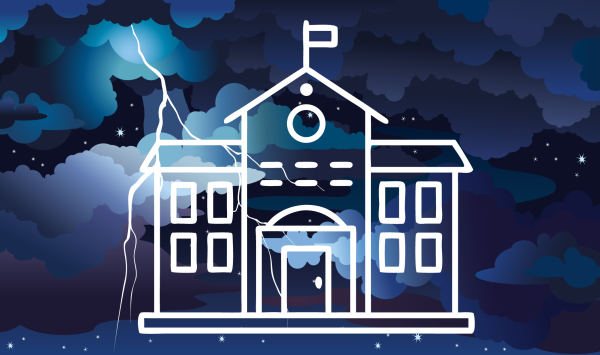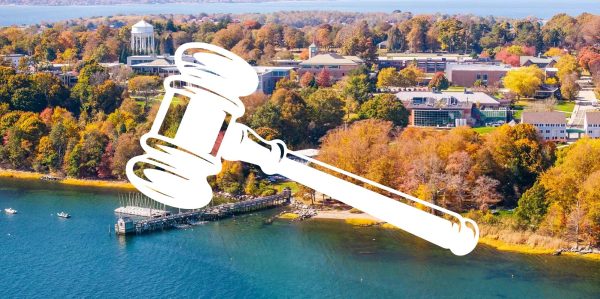RWU hosts NASA symposium
The NASA Rhode Island Space Grant Consortium 2019 Symposium took place at RWU on April 13.
The event was held in the School of Architecture where students, researchers, professors and scientists gathered for breakfast, a series of lectures and a viewing of the research posters on display.
The event opened up with a talk from Pete Schultz, a professor at Brown University. He spoke about the NASA Apollo 50th Anniversary and the events that would take place in celebration this summer.
Since the grant is present in every higher institution in the Ocean State, Schultz’s team is hoping to have every participant involved in an Apollo anniversary event with WaterFire in Providence. He said getting this point across that NASA is now everywhere and affects people’s careers in many different ways.
“There will be tents, booths. I want everyone there to talk to the public in a way they can understand about having this opportunity,” Schultz said. “What I am hoping is that for the 50th anniversary is to show how NASA is in every institution as a product of a legacy of Apollo. Without it, none of this would occur.”
RWU has a student research team funded by NASA. Seniors Colby Masse and Scott MacConnell discussed their team’s research on chlorofluorocarbons, a class of man-made compounds, are responsible for ozone degradation, how they react in earth’s environment and how scientists can accelerate the breakdown process.
Stephen O’Shea, professor of chemistry and adviser for the RWU R.I. NASA Space Consortium research team, said the support from NASA allows them to give summer scholarships and provides students the opportunity to use the instruments in lab they normally do not get to use outside the normal laboratory setting.
“It brings in the part of research where trial and error and the students learn to work on the fly rather than work on a preset program with instructions to follow,” O’Shea said. “By developing this technique, they understand the instruments a lot more, and when they go into the actual industry or academia, they’re a lot more well trained than most students from larger universities that don’t get this same opportunity.”
The group said they are grateful for the opportunities this program has brought them.
“We get to do our own thing, in a sense, whereas usually everything is very structured, so we had more of a creative aspect to it,” MacConnell said.
Other presenters included Alexa Sterling from the University of Rhode Island and Zane Grissett from URI. Other students and faculty from URI, Brown, Wheaton College, Salve Regina University and the Museum of Natural History all spoke about their research and collaboration with people to educate the public on a variety of scientific topics.
“People think NASA is only landing on planets,” Schultz said. “But in fact, a lot of what NASA does is things like what the students are doing here.





